#made by lbn
Explore tagged Tumblr posts
Photo

2025 March 5
Seven Sisters versus California Image Credit & Copyright: Todd Anderson
Explanation: On the right, dressed in blue, is the Pleiades. Also known as the Seven Sisters and M45, the Pleiades is one of the brightest and most easily visible open clusters on the sky. The Pleiades contains over 3,000 stars, is about 400 light years away, and only 13 light years across. Surrounding the stars is a spectacular blue reflection nebula made of fine dust. A common legend is that one of the brighter stars faded since the cluster was named. On the left, shining in red, is the California Nebula. Named for its shape, the California Nebula is much dimmer and hence harder to see than the Pleiades. Also known as NGC 1499, this mass of red glowing hydrogen gas is about 1,500 light years away. Although about 25 full moons could fit between them, the featured wide angle, deep field image composite has captured them both. A careful inspection of the deep image will also reveal the star forming region IC 348 and the molecular cloud LBN 777 (the Baby Eagle Nebula).
∞ Source: apod.nasa.gov/apod/ap250305.html
77 notes
·
View notes
Text
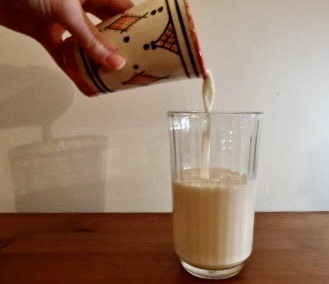
[ID: Buttermilk being poured from a Moroccan ceramic cup with orange and black geometric designs into a glass. End ID]
لبن نباتي / Lbn nabati (Vegan traditional buttermilk)
Lbn (لْبْنْ or لْبَنْ; also transliterated "lban") is a Moroccan buttermilk drink. It is not to be confused with standard Arabic لَبَن ("laban"), meaning "milk"; with Levantine لَبَن ("laban"), also called لَبَن رَائِب ("laban ra'ib"), which is curdled milk (a.k.a., yoghurt); or with Levantine لَبْنَة ("labna"), which is yoghurt that has been strained and thickened.
Instead, lbn is a traditional buttermilk. It is historically made the same way Western traditional buttermilk is: by leaving raw milk to sit at room temperature while the cream separates and rises to the top, allowing the cream to ferment, and then churning the cream until it separates further into milk solids (cultured butter) and a cultured liquid byproduct (traditional buttermilk). Commercial Western buttermilk, and some Moroccan lbn, is now no longer traditional buttermilk but instead cultured buttermilk, which is produced by fermenting low-fat milk; this produces a thicker, more acidic liquid than traditional buttermilk. Lbn is usually made with goat's milk, though cow's milk is also often used.
Lbn—very sour and tangy, slightly sweet, and about the consistency of milk—is consumed as a refreshing after-dinner drink during the summer. It is also used to soak كُسْكُس ("couscous") (made from durum, barley, or corn flour). Couscous with lbn is called سَيْكُوك ("saykouk") in Darija (Moroccan Arabic), or أزَيْكُوك ("azaykouk") in Tamazight.
Saykouk is a cold dish, commonly eaten in the desert and in rural areas during the summertime; but it is also sold from food carts and by vendors on bicycles year-round in cities. On Fridays, Moroccans often eat couscous dishes with lbn on the side, and may make some on-the-fly saykouk by pouring lbn into their bowls to soak the couscous that remains after the vegetables or meat in the dish have been eaten.
This recipe resembles cultured buttermilk, in that it ferments non-dairy milk with live cultures to achieve a sour taste. However, it more resembles traditional dairy buttermilk in taste and texture. Note that this lbn is intended for drinking and for recipes that call for Moroccan traditional buttermilk, and not for replacing Western cultured buttermilk in pastries or pancakes.
Recipe under the cut!
Patreon | Paypal | Venmo
Ingredients:
2 cups full-fat oat milk
1-3 vegetarian probiotic capsules (containing at least 10 billion cultures total)
A few pinches salt
A few pinches granulated sugar
Make sure your probiotic capsules contain no prebiotics, as they can interfere with the culture. The probiotic may be multi-strain, but should contain some of: Lactobacillus casei, Lactobacillus rhamnosus, Bifidobacterium bifidus, Lactobacillus acidophilus. The number of capsules you need will depend on how many cultures each capsule is guaranteed to contain.
Instead of probiotic capsules, you can use a specialty starter culture pack intended for use in culturing vegan dairy, many of which are available online. Note that starter cultures may be packaged with small amounts of powdered milk for the bacteria to feed on, and may not be truly vegan.
Other types of non-dairy milk may work. My trial with soy milk did not succeed (it never became notably tangy). Soaked and blended cashews will thicken substantially, so be sure to blend cashews with at least twice their volume in (just-boiled, filtered) water if you want to use cashews as your base. I found that oat milk, as well as being more convenient and cheaper than cashews, more closely mimicked the taste of lbn. I have not tested anything else.
Instructions:
1. Boil several cups of water and use the just-boiled water to rinse your measuring cup, the container you will ferment your lbn in, and a wooden spoon or rubber spatula to stir. Your bowl and stirring implement should be in a non-reactive material such as wood, clay, glass, or silicone.
2. Measure oat milk into a container and open probiotic capsules into it. Stir the powder from the capsules in until well combined.
3. Cover the opening of the container with a cheesecloth or tea towel. Ferment for 24 hours: on the countertop in temperate weather, or in an oven with the light on in cold weather.
Taste the lbn with a clean implement (avoid double-dipping!) to see if it is ready. If it still tastes 'oaty,' continue fermenting for another 1-3 days, tasting every 12 hours, until it is notably tangy.
4. Blend lbn with large pinches of salt and sugar; or put lbn, salt, and sugar in a jar with a lid and shake to combine. Taste and adjust salt and sugar.
5. Store in an airtight container in the refrigerator for up to a week. This lbn will continue to culture slowly in the fridge and will eventually (like dairy lbn) become too sour to drink.
Serve chilled.
#I'm really excited about this one guys I have been racking my brain for a way to make vegan lbn forever!!#but that was before I knew about the power of culturing#Moroccan#cultured#fermented#vegan recipes#vegetarian recipes
83 notes
·
View notes
Note
I just seen this meme and it instantly made me think of Angela with Damien 😂
https://x.com/chaucenosauce/status/1777732305324318826?s=46&t=LBN-nTL3dHZAbWOFkeCnKg
Lmao

#Damien Haas#Angela Giarratana#Smosh#Damngela Dynamic Enjoyer#Smosh Games#Smosh Pit#Damangela#Damien and Angela#Damien x Angela#Damngela#Damien/Angela#smoshblr#the definition of their dynamic lmao
43 notes
·
View notes
Text
Discovering the world
Lebanon 🇱🇧
Basic facts
Official name: الجمهورية اللبنانية (al-Jumhūrīyah al-Lubnānīyah) (Republic of Lebanon)
Capital city: Beirut
Population: 5.3 million (2023)
Demonym: Lebanese
Type of government: unitary parliamentary republic
Head of state: vacant (President)
Head of government: Najib Mikati (Prime Minister)
Gross domestic product (purchasing power parity): $78.23 billion (2022)
Gini coefficient of wealth inequality: 31.8% (medium) (2011)
Human Development Index: 0.723 (high) (2022)
Currency: pound (LBP)
Fun fact: It hosts the highest number of refugees per capita and per square kilometer.
Etymology
The country’s name comes from Mount Lebanon, whose name derives from the Phoenician root lbn, meaning “white”.
Geography
Lebanon is located in West Asia and borders Syria to the north and east, Israel to the south, and the Mediterranean Sea to the west.
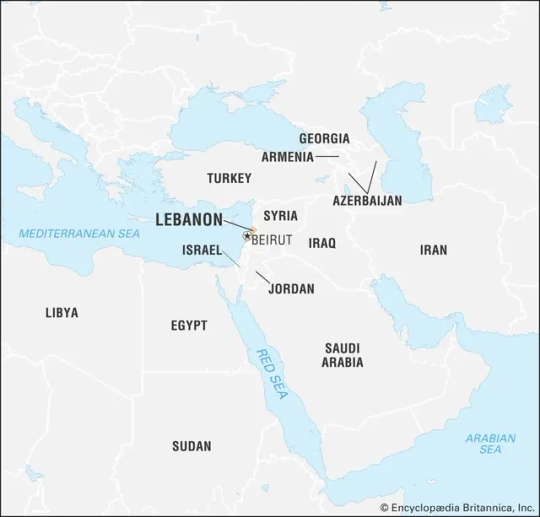
There are two main climates: Mediterranean-influenced humid continental in the center and east and hot-summer Mediterranean in the rest. Temperatures range from 11 °C (51.8 °F) in winter to 30 °C (86 °F) in summer. The average annual temperature is 20.9 °C (69.6 °F).

The country is divided into nine governorates (muḥāfaẓāt), which are further divided into twenty-five districts (aqdyah). The largest cities in Lebanon are Beirut, Tripoli, Jounieh, Zahlé, and Sidon.
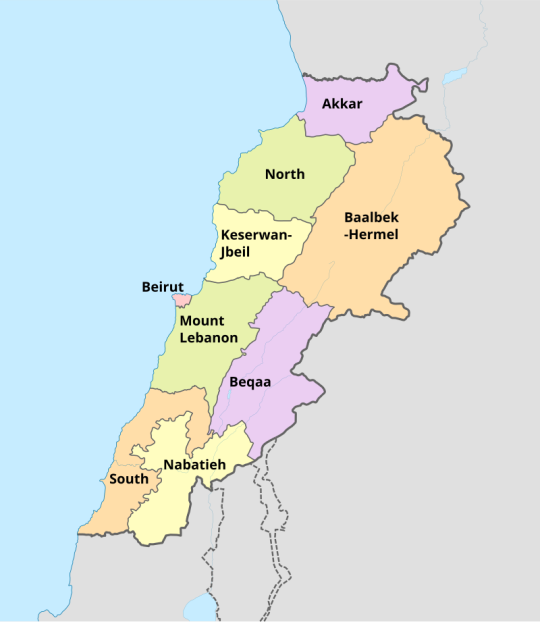
History
2500-64 BCE: Phoenicia
1650-1180 BCE: Hittite Empire
1550-1069 BCE: New Kingdom of Egypt
550-332 BCE: Achaemenid Empire
332-64 BCE: Seleucid Empire
64 BCE-394 CE: Roman Empire
394-635: Byzantine Empire
619-629 CE: Sasanian Empire
636-661: Rashidun Caliphate
661-750: Umayyad Caliphate
750-1517: Abbasid Caliphate
1099-1291: Kingdom of Jerusalem
1102-1289: County of Tripoli
1250-1516: Mamluk Sultanate
1516-1842: Emirate of Mount Lebanon
1516-1918: Ottoman Empire
1843-1861: Double Qaim-Maqamate of Mount Lebanon
1860: civil conflict in Mount Lebanon and Damascus
1915-1918: Great Famine of Mount Lebanon
1920-1926: State of Greater Lebanon
1923-1946: Mandate for Syria and the Lebanon
1926-1943: Lebanese Republic
1943-present: Republic of Lebanon
1948: Arab-Israeli War
1975-1990: Lebanese Civil War
1976-2005: Syrian occupation
1985-2000: South Lebanon conflict
2005: Cedar Revolution
2006: Lebanon War
2006-2008: protests
2007: Lebanon conflict
2011: Intifada of Dignity
2019: 17 October Revolution
2020: Beirut explosion
2021: Beirut clashes
Economy
Lebanon mainly imports from the European Union, Türkiye, and China and exports to the European Union, the United Arab Emirates, and Switzerland. Its top exports are diamonds, polyacetals, and gold.
It has natural gas, limestone, oil, and salt reserves. Services represent 83% of the GDP, followed by industry (13.1%) and agriculture (3.9%).
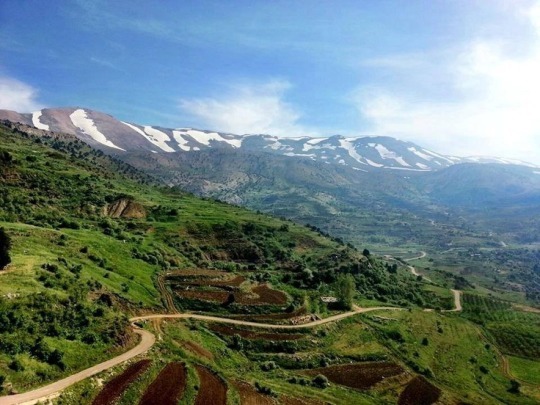
Lebanon is a member of the Arab League, la Francophonie, and the Organization of Islamic Cooperation.
Demographics
95% of the population is Arab, while Armenians make up 4%. The main religion is Islam, practiced by 55% of the population, 27.6% of which is Sunni.
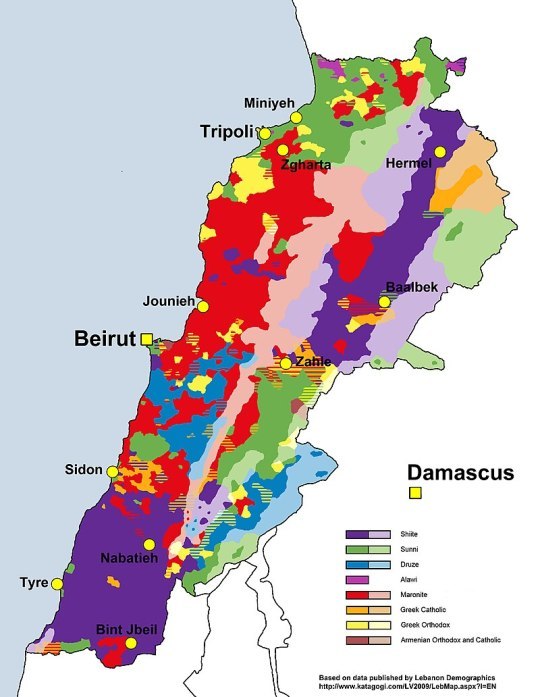
It has a negative net migration rate and a fertility rate of 1.7 children per woman. 89% of the population lives in urban areas. Life expectancy is 78.3 years and the median age is 31.3 years. The literacy rate is 96.7%.
Languages
The official language of the country is Arabic. French is spoken by 40% of the population.

Culture
Lebanese culture has Persian, Greek, Roman, Arab, Ottoman, and French influences. Lebanese people are very gregarious.
Men traditionally wear a shirt, a dark vest, baggy pants (sherwal), a belt, and a headdress. Women wear a shiny dress (gambaz), a wide belt, and a conical hat with a long piece of silk (tantur).
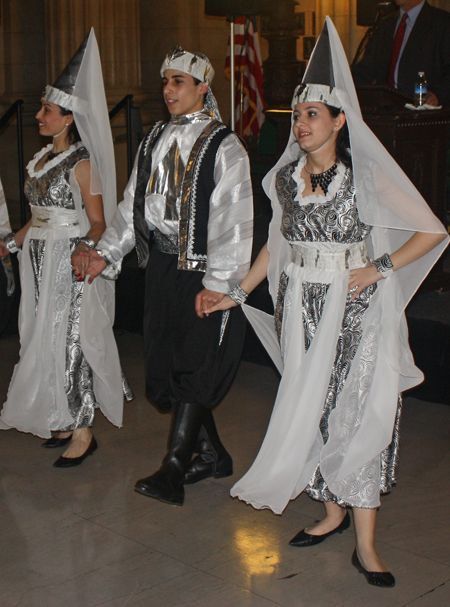
Architecture
Traditional houses in Lebanon are made of stone and wood and have flat roofs and terraces.
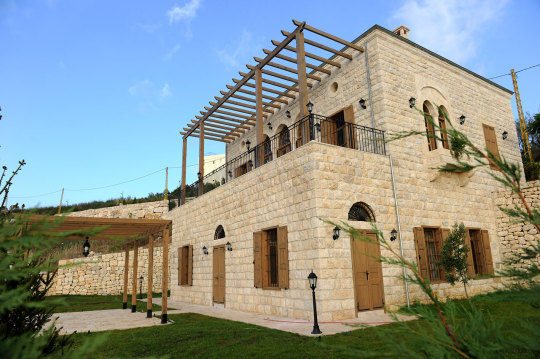
Cuisine
The Lebanese diet is based on fish, meat, pulses, and vegetables. Typical dishes include bamieh bi-zeit (okra and tomato stew), kibbeh (fried balls made of spiced meat and bulgur), sayadieh (seasoned fish and rice), sfouf (an almond-semolina cake), and tabbouleh (a salad of bulgur, onion, tomatoes, and parsley).
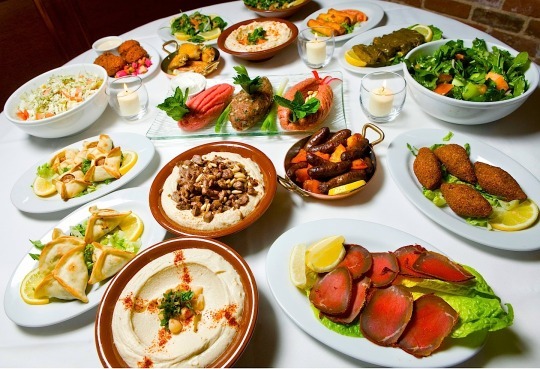
Holidays and festivals
Like other Christian and Muslim countries, Lebanon celebrates Epiphany, Armenian Christmas, St. Maroun Day, Feast of the Annunciation Day, Good Friday, Easter Sunday, Assumption, Christmas Day, Islamic New Year, Ashura, Mawlid, Eid al-Fitr, and Eid al-Adha. It also commemorates New Year’s Day and Labor Day.
Specific Lebanese holidays include Rafic Hariri Memorial Day on February 14, Liberation and Resistance Day on May 25, and Lebanese Independence Day on November 22.
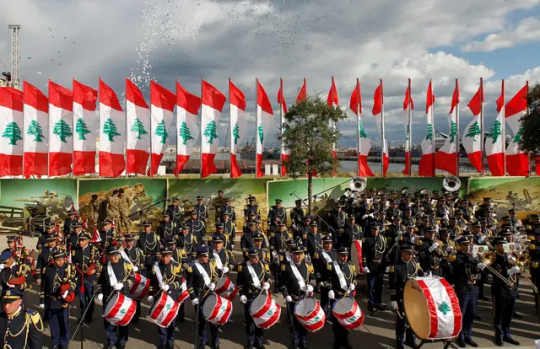
Independence Day
Other celebrations include the Aerial and Circus Arts Festival, the Baalbeck International Festival, which features dance and music performances, and the Beiteddine Art Festival.
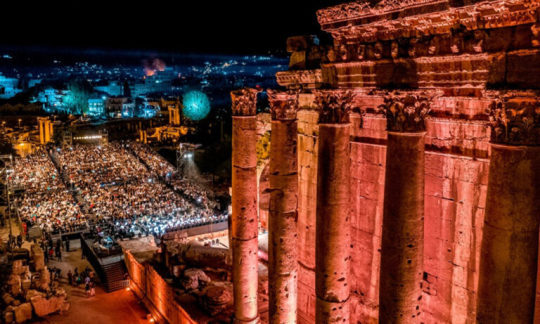
Baalbeck International Festival
Landmarks
There are six UNESCO World Heritage Sites: Anjar, Baalbek, Byblos, Ouadi Qadish (the Holy Valley) and the Forest of the Cedars of God (Horsh Arz el-Rab), Rachid Karami International Fair-Tripoli, and Tyre.
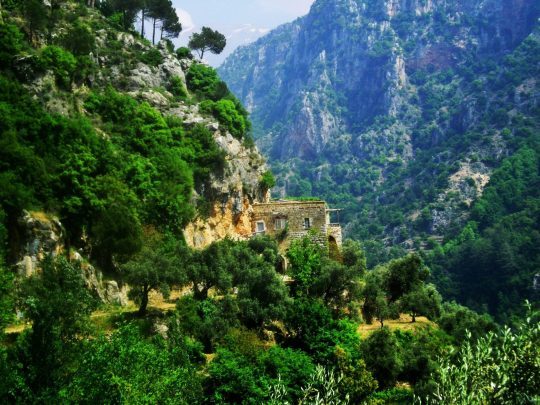
Ouadi Qadish and the Forest of the Cedars of God
Other landmarks include Jabal Moussa, the Mohammad Al-Amin Mosque, the Moussa Castle, Our Lady of Lebanon, and the Tripoli Citadel.
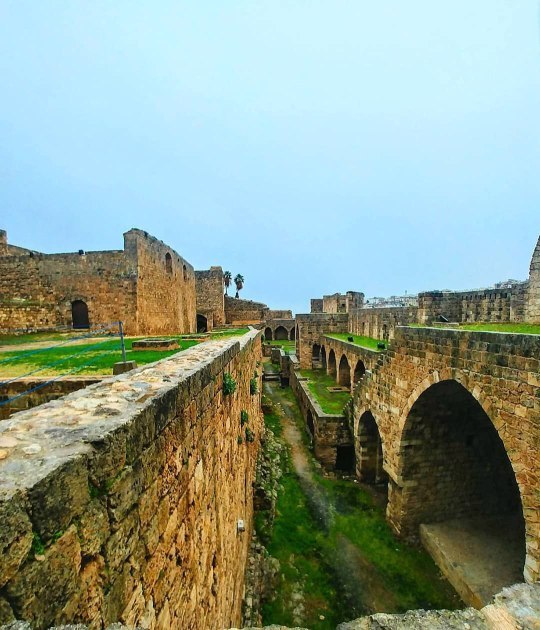
Tripoli Citadel
Famous people
Amin Maalouf - writer
Elie Saab - fashion designer
Fares Fares - actor
Jackie Chamoun - skier
Khalil Beschir - racing driver
May Ziade - poet and writer
Nadine Labaki - actress
Najwa Karam - singer
Ragheb Alama - singer
Rima Fakih - model

Rima Fakih
You can find out more about life in Lebanon in this post and this video.
7 notes
·
View notes
Text
Discover the phases involved in web development and the types of web development. From research and planning to testing and maintenance, learn how each stage contributes to creating captivating websites. Explore insights from LBN Tech Solutions, where expert developers turn your vision into reality.
#WebDevelopment#FrontEndDevelopment#BackEndDevelopment#WebDesign#WebsitePlanning#WebDevProcess#DigitalMasterpiece#LBNTechSolutions#CodingLife#WebDeveloper#WebsiteLaunch#SEO#SMM#WebDevelopmentPhases#WebDevTips#TechInnovation#WebsiteMaintenance#WebAppDevelopment#ResponsiveDesign#UserExperience#WebTechnology
3 notes
·
View notes
Text
Astronomy Picture of the Day
2025 March 5


Seven Sisters versus California
The featured image shows a wide field with the red California Nebula on the left, the blue Pleiades Star Cluster on the right, and much brown interstellar dust in between.
Image Credit & Copyright: Todd Anderson
On the right, dressed in blue, is the Pleiades. Also known as the Seven Sisters and M45, the Pleiades is one of the brightest and most easily visible open clusters on the sky. The Pleiades contains over 3,000 stars, is about 400 light years away, and only 13 light years across. Surrounding the stars is a spectacular blue reflection nebula made of fine dust. A common legend is that one of the brighter stars faded since the cluster was named. On the left, shining in red, is the California Nebula. Named for its shape, the California Nebula is much dimmer and hence harder to see than the Pleiades. Also known as NGC 1499, this mass of red glowing hydrogen gas is about 1,500 light years away. Although about 25 full moons could fit between them, the featured wide angle, deep field image composite has captured them both. A careful inspection of the deep image will also reveal the star forming region IC 348 and the molecular cloud LBN 777 (the Baby Eagle Nebula).
Authors & editors: Robert Nemiroff (MTU) & Jerry Bonnell (UMCP)
NASA Official: Amber Straughn
A service of: ASD at NASA / GSFC,
NASA Science Activation
& Michigan Tech. U.
1 note
·
View note
Note
Hi bear I would like to make a gender neutral tumblr account but I can’t think of a name or account name any ideas
hello, anon!
honestly, i'm probably *the* worst person to ask for this because all of my usernames, both f1 and not, typically follow the same naming scheme.
i got littlebearnation from a joke i made after reading a fanfic where kimi called ollie 'little bear' and my brain kept saying how cool that'd be for an ollie fan account on twitter or something and then i ended up posting scales & flames and i hated my old username so badly that i changed it to lbn after thinking about it for ages.
when trying to decide on a username for here, i was torn between babybearnation and something related to mclaren but went for bbn due to that familiarity and similarity to lbn. i wanted the two to be linked.
honestly, the best thing i can recommend is to think of something related to your favourite driver or a good meme or something else if this isn't f1 related and trial it - see how you feel.
if anyone else has any advice, please throw it in here, because i feel lowkey useless LOL.
0 notes
Text
Things You Need To Consider While Booking A Hotel
Planning a tour is always exciting especially when you are going to your dream place such as Marrakech. It is a city in Morocco that offers one of the best sightings, and luxury life which makes it an ideal choice for travelers. However, it is important to choose the best hotels booking in Marrakech to get a smooth and hassle-free traveling experience. If you are a traveler and keen to know more, about the best hotel in Marrakech and the best places to stay in London, stay around to learn more.

Mistake That You Should Avoid While Booking Hotel
It is important to avoid common mistakes that we make during booking a hotel for our tour. In the below, we have mentioned some of the points that you should avoid. Have a look at it.
Do not Book Hotel Through Third party website - This is one of the common mistakes that made by most travelers. If you book your hotel by going through the third-party website, this may not guarantee your room availability and provide wrong information about the refunds. To avoid such issues, always book budget hotels in Marrakech through the hotel to make sure accurate bookings and better cancelation policies.
Ignore To Join Loyalty Program - There are several reputed hotels that offer loyalty programs to their customer. Do not ignore the loyalty program and join to get valuable benefits such as discounts, free upgrades, early check/ late checks out, and many more.
Use Correct Arrivals and Departure Date - Check twice your arrivals and departure date to avoid any unnecessary expenses. Check and make sure that your booking aligns with your travel giddy. Also, consider the time zone and potential flight schedule changes to avoid extra expenses.
Do Not Forget To Check Hotel Maximum Occupancy - Always check the maximum occupancy of your room to avoid any kind of issue while check-in. Always go through the hotel guest policy to plan your stay smoothly and avoid any unwanted changes.
Considering Looks over Location - Do not prioritize the looks over the location. If you do this this may lead to inconvenience and extra expenses due to the lack of accessibility to key attractions. It is necessary to balance your comfort and convenience by selecting a hotel that is located centrally and easy to access to your planned activities.
Avoiding this common mistake and researching before booking a hotel can help you to make a wise decision for your tour.
Conclusion
For a hassle-free experience always take your time and research the hotel you are going to book. Check their policies and maximum occupancy to avoid any kind of unwanted changes. For the budget hotels in Marrakech, you can reach out to the LBN Hotels & Tours. Where you will get in-depth information.
0 notes
Text
Aisha
Aisha bint Abu Bakr (RA), was the wife of Muhammad (PBUH), the founder of Islam. She came to be called, “Mother of the Believers.”
Muhammad built Aisha’s (RA) home so that her door opened directly into the mosque. She was the only woman with whom Muhammad (PBUH) received revelations.
She could easily have lived a life of privileged leisure. Instead, she became a highly respected scholar.
She is credited with producing 2,210 Hadith, widely recognized and accepted by Islam, not just on matters related to Muhammad’s (PBUH) private life, but also on topics such as inheritance, pilgrimage, and eschatology.
25% of all Shariah Law is based on her Hadith.
Her intellect and knowledge in a wide range of subjects, were highly praised by early Muslim scholars.
She was known to possess an eidetic memory and piercing intellect.
Far from illiterate, she herself transcribed “The Love Surahs.”
“The Love Surahs” text is the verbatim content of pronouncements made by Muhammad (PBUH) in his last days, as he was confined to his deathbed.
His last breath was taken as he lay in her arms, his most beloved wife.
She lived during the age of Jahiliyya (ignorance) when women were thought less valuable than men.
The traditions regarding Aisha (SA) tell us that she forcefully opposed ideas unfavorable to women in efforts to elicit social change.
There exists substantial evidence that Muhammad (PBUH) did not view himself as superior to Aisha and encouraged her to speak to him candidly, even at the risk of his anger.
Furthermore, Muhammad (PBUH) and Aisha (SA) had a strong intellectual relationship. He valued her keen memory and intelligence, instructing his companions to draw much of their religious practices from her.
Aisha (SA) contributed her scholarly intellect to the fullest development of Islam.
Aisha (SA) was known for her expertise in the Quran, shares of inheritance, matters of law, poetry, Arabic literature, Arab history, genealogy, and medicine.
Her intellectual contributions regarding the verbal texts were transcribed into the official history of Islam.
After the death of the Prophet Muhammad (PBUH), there were concerns about the accuracy of the Quran’s preservation. Aisha (SA) played a key role in ensuring that knowledge was preserved.
During Aisha’s (SA) entire life she was a strong advocate for the education of Islamic women, especially in law and the wisdom teachings of Islam.
She was known for establishing the first Madrasa (Muslim school) for women in her home. Attending Aisha’s (SA) classes were various family relatives and orphaned children. Men also attended Aisha’s (SA) classes, with a simple curtain separating the male and female students.
Aisha (SA) was also considered to be the embodiment of proper rituals while partaking in the pilgrimage to Mecca, a journey she made with several groups of women. For her last two years of life, Aisha spent much time telling the stories of Muhammad (PBUH), hoping to correct false passages that had influenced formulation of Islamic law.
Aisha (SA) died at her home in Medina on 17 Ramadan 58 AH (16 July 678). She was 67 years old.
The name Aisha (SA) is Arabic in origin and means “she lives.”
“Aisha was the bridge between the time of the prophet and the future of Islam.” —- Resit Haylamaz
“I have never seen anyone who could have knowledge of an ayah, an obligatory act, a Sunnah act, poetry, history, lineage, judgement, or medicine better than Aisha.” –Hisham lbn Urwa
1 note
·
View note
Text
Babysitting
Ship: Trimberly
Prompt by @purrpickle: Kim meeting Trini’s brothers for the first time.
***
Kim concentrated. The Ranger Link was useful, but you still couldn’t mind-read. She could tell that Trini was stressed. Like, hella, about-to-punch-a-wall stressed. But it wasn’t mixed with any sort of fear, like when they were out fighting Big Bads. And it wasn’t mixed with sadness, like when Trini fought with her mom. But still...Kim made a decision.
Fifteen minutes later, she was ringing Trini’s doorbell.
Trini answered, looking haggard. “Oh thank god,” she said, pulling Kim into the house. “I got roped into babysitting today.”
“What’s wrong with - Arggh!” Kim yelped, as a NERF ball struck her.
“They’re usually angels, really,” Trini swore. “I think they’re acting out because Mom has been turning her controlling claws on them more.”
“Rambunctious boys? Piece of cake,” Kim said.
“Who’s this?” Twin One asked.
“Is this your giiiiiiirlfriennnnd?” Twin Two added.
“Yes,” Trini said. “This is Kim. Kim, my brothers Roddy and Mikey.”
“Howdy, boys!” Kim chirped. She knelt down to their level. “I hear the two of you are super smart, and really good at building stuff. Is that right?”
“Yeah!” both twins said.
“Well...if that’s the case...maybe you could help me with something? Ever heard of a Rube Goldberg machine?”
The boys shook their heads.
*
Matteo and Ana Gomez got home later that day to find an interesting structure in their living room. Black Panther was going off on the TV, their boys were asleep on the floor, and Trini and the girl from all of Trini’s pictures were asleep on the couch.
Ana’s eye popped, spotting the girls, but Matteo put a hand on her shoulder and nodded toward the kitchen.
“Relax,” he said. “They’re just taking a nap.”
“They’re sleeping together!” Ana snapped.
“Literally. Love, be reasonable, there’s clearly nothing sexual going on. The boys are in the room, and they were watching a superhero movie. They probably all just fell asleep.”
“It’s inappropriate!”
“How?” Matteo challenged, trying not to smile.
Ana fumed for a second, but calmed. “I just...she never tells me anything. And now she has a girlfriend who’s helping her babysit?”
“And apparently making some fun videos with the boys,” Matteo said. He had picked up the spare video camera that was out on the table, and was running back the tape. “Come on, let’s get dinner started. We’re already in the house, so we can officially meet Trini’s girl before she sneaks her out this time.”
“THIS TIME?” Ana shrieked, waking the four in the living room.
“Oh damn,” Trini muttered. “Well, you’ve met my brothers. Time to meet my parents.”
62 notes
·
View notes
Photo










“let me be the one”
#Love By Chance#Love By Chance the Series#Love By Chance Series#Lakornet#Thai Drama#AePete#LBC Spoilers#Saint Suppapong#Perth Tanapon#wick edits#S: Love By Chance#P: AePete#LBN: Ae#LBN: Pete#You can always tell which gifs I made or not by the number of tags lol
410 notes
·
View notes
Photo

Seven Sisters versus California : On the upper right, dressed in blue, is the Pleiades. Also known as the Seven Sisters and M45, the Pleiades is one of the brightest and most easily visible open clusters on the sky. The Pleiades contains over 3,000 stars, is about 400 light years away, and only 13 light years across. Surrounding the stars is a spectacular blue reflection nebula made of fine dust. A common legend is that one of the brighter stars faded since the cluster was named. On the lower left, shining in red, is the California Nebula. Named for its shape, the California Nebula is much dimmer and hence harder to see than the Pleiades. Also known as NGC 1499, this mass of red glowing hydrogen gas is about 1,500 light years away. Although about 25 full moons could fit between them, the featured wide angle, deep field image composite has captured them both. A careful inspection of the deep image will also reveal the star forming region IC 348 and the molecular cloud LBN 777 (the Baby Eagle Nebula). via NASA
465 notes
·
View notes
Text
How this hadith: ❝Convey from me, even if it is one verse❞ should be understood?
Shaykh Muhammad bin Saalih al-`Uthaymeen رحمه الله said:
❝When a person has knowledge and insight into that which he is calling to, then there is no difference between the one who has a great amount of knowledge, or a student of knowledge who has recently started in pursuit of knowledge or a lay person – as long as he has certain knowledge of the issue at hand.
The Prophet ﷺ said: ❝Convey from me, even if it is one verse.❞ [Saheeh al-Bukhaaree]
So it is not a condition upon the daee (the one calling) to attain a great amount of knowledge, but the condition is that one must have knowledge of what one is calling to. If this calling is established upon ignorance and built upon emotion and passion, then it is NOT permissible.
Thus, we see that some of the brothers who call to Allaah, they do not have except a little knowledge. We see them, due to their strong emotions, prohibiting that which Allaah has not prohibited, whilst making obligatory that which Allaah has not made obligatory upon His worshippers. This is a very DANGEROUS matter, since permitting what Allaah has made Haraam (unlawful) is like prohibiting what Allaah has made Halaal (lawful). So when they begin prohibiting people for making a particular matter then others will rebuke them for making it Haraam.
Allaah تعالى says: ❝{And do not say, concerning that which your tongues falsely put forward, ‘This is lawful and this is forbidden,’ so as to invent lies against Allaah. Indeed, those who invent lies against Allaah will never prosper.}❞ [Surah al-Nahl (16):116-117]
As for the lay person, then he must not call to Allaah if he does not have knowledge. Rather, it is essential to have knowledge in accordance with the saying of Allaah تعالى: ❝{Say: This is my path. I call to Allaah upon sure knowledge.}❞ [Surah Yoosuf (12):108]
So it is a must to call to Allaah upon knowledge. However, if a matter is clearly known to be evil or good, then one can command it – if it is good, or forbid it – if it is evil.
So the callers to Allaah must start with knowledge. Whosoever calls to Allaah without knowledge, then such a person will cause greater harm than good – as is evident. So it is obligatory for a person to first acquire knowledge, then to do Da`wah. As for the clear evils and that which is clearly good, then the good is enjoined and the evil prohibited.❞
[As-Sahwatul-Islaamiyyah (pp.59-60) of Shaykh lbn al-`Uthaymeen]
24 notes
·
View notes
Photo

2022 April 5
Seven Sisters versus California Image Credit & Copyright: Neven Krcmarek
Explanation: On the upper right, dressed in blue, is the Pleiades. Also known as the Seven Sisters and M45, the Pleiades is one of the brightest and most easily visible open clusters on the sky. The Pleiades contains over 3,000 stars, is about 400 light years away, and only 13 light years across. Surrounding the stars is a spectacular blue reflection nebula made of fine dust. A common legend is that one of the brighter stars faded since the cluster was named. On the lower left, shining in red, is the California Nebula. Named for its shape, the California Nebula is much dimmer and hence harder to see than the Pleiades. Also known as NGC 1499, this mass of red glowing hydrogen gas is about 1,500 light years away. Although about 25 full moons could fit between them, the featured wide angle, deep field image composite has captured them both. A careful inspection of the deep image will also reveal the star forming region IC 348 and the molecular cloud LBN 777 (the Baby Eagle Nebula).
∞ Source: apod.nasa.gov/apod/ap220405.html
38 notes
·
View notes
Photo

Seven Sisters versus California via NASA https://ift.tt/SrBnDG3
On the upper right, dressed in blue, is the Pleiades. Also known as the Seven Sisters and M45, the Pleiades is one of the brightest and most easily visible open clusters on the sky. The Pleiades contains over 3,000 stars, is about 400 light years away, and only 13 light years across. Surrounding the stars is a spectacular blue reflection nebula made of fine dust. A common legend is that one of the brighter stars faded since the cluster was named. On the lower left, shining in red, is the California Nebula. Named for its shape, the California Nebula is much dimmer and hence harder to see than the Pleiades. Also known as NGC 1499, this mass of red glowing hydrogen gas is about 1,500 light years away. Although about 25 full moons could fit between them, the featured wide angle, deep field image composite has captured them both. A careful inspection of the deep image will also reveal the star forming region IC 348 and the molecular cloud LBN 777 (the Baby Eagle Nebula).
(Published April 05, 2022)
18 notes
·
View notes
Text
How this hadith: ❝Convey from me, even if it is one verse❞ should be understood?
Shaykh Muhammad bin Saalih al-`Uthaymeen رحمه الله said:
❝When a person has knowledge and insight into that which he is calling to, then there is no difference between the one who has a great amount of knowledge, or a student of knowledge who has recently started in pursuit of knowledge or a lay person – as long as he has certain knowledge of the issue at hand.
The Prophet ﷺ said: ❝Convey from me, even if it is one verse.❞ [Saheeh al-Bukhaaree]
So it is not a condition upon the daee (the one calling) to attain a great amount of knowledge, but the condition is that one must have knowledge of what one is calling to. If this calling is established upon ignorance and built upon emotion and passion, then it is NOT permissible.
Thus, we see that some of the brothers who call to Allaah, they do not have except a little knowledge. We see them, due to their strong emotions, prohibiting that which Allaah has not prohibited, whilst making obligatory that which Allaah has not made obligatory upon His worshippers. This is a very DANGEROUS matter, since permitting what Allaah has made Haraam (unlawful) is like prohibiting what Allaah has made Halaal (lawful). So when they begin prohibiting people for making a particular matter then others will rebuke them for making it Haraam.
Allaah تعالى says: ❝{And do not say, concerning that which your tongues falsely put forward, ‘This is lawful and this is forbidden,’ so as to invent lies against Allaah. Indeed, those who invent lies against Allaah will never prosper.}❞ [Surah al-Nahl (16):116-117]
As for the lay person, then he must not call to Allaah if he does not have knowledge. Rather, it is essential to have knowledge in accordance with the saying of Allaah تعالى: ❝{Say: This is my path. I call to Allaah upon sure knowledge.}❞ [Surah Yoosuf (12):108]
So it is a must to call to Allaah upon knowledge. However, if a matter is clearly known to be evil or good, then one can command it – if it is good, or forbid it – if it is evil.
So the callers to Allaah must start with knowledge. Whosoever calls to Allaah without knowledge, then such a person will cause greater harm than good – as is evident. So it is obligatory for a person to first acquire knowledge, then to do Da`wah. As for the clear evils and that which is clearly good, then the good is enjoined and the evil prohibited.❞
[As-Sahwatul-Islaamiyyah (pp.59-60) of Shaykh lbn al-`Uthaymeen]
5 notes
·
View notes